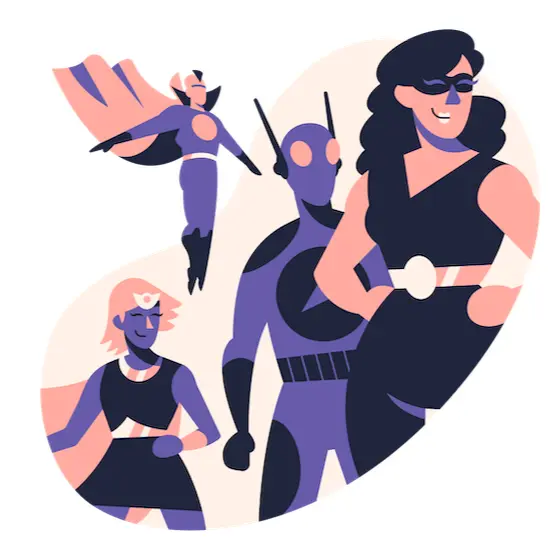Women and nonbinary people are underrepresented in the Elixir community. Just 2% of Elixirists in the 2020 ElixirConf Community Survey identified as women, and less than 1% identified as nonbinary.
At DockYard, we’re committed to helping close the gender disparity in the Elixir community. As part of that effort, we once again sponsored a group of gender-diverse Elixirists to attend ElixirConf 2022.
Our sponsorship winners come from diverse backgrounds and experience levels. They range from a software engineer with a background in Elixir to a community newcomer learning the ropes.
Ileana Perez
Mexico City native Ileana began her career as a software developer a decade ago after graduating with a degree in computer systems engineering.
She began working with Elixir in 2017. She was invited to a conference, where her interest was piqued by a cluster of Raspberry Pis and x86 computers running the same code, serving HTML, and handling calculations. From there she dug into Elixir tutorials and started working on personal projects.
“I love the simplicity and plasticity of elixir, feels like you only need to describe the problem, connect functions and that’s it!”
With that self-taught experience behind her, Ileana pitched the idea of introducing Elixir at the company she was working for, and eventually got her Elixir project to production.
She most appreciated the breadth of use cases for Elixir on display at this year’s conference. In the process of working on her master’s degree in data science, she already has plans to work on more Elixir projects and the Elixir debugger specifically.
During the conference, she was particularly impressed by the openness of the community and the speed at which Elixir is growing. Increasing the visibility of underrepresented groups in the community goes a long way toward demonstrating the openness of the Elixir community as a whole, she said.
“Sometimes it feels like, as a minority, everything is more difficult: finding a job, getting an education, etc. So showing direct support to underrepresented groups shows an active commitment to open the community to everybody.”
Amal Sultan
Amal came into this year’s ElixirConf with a background in computer science. She started her career as an engineer in 2018 and works largely with Python and Elixir. She began using Elixir for a project at a company already using the language and got up to speed with hands-on practice and the help of Elixir in Action by Saša Juric.
She advises other people from underrepresented groups to take the leap into Elixir, even if it’s an entirely new language to them.
“Do it as soon as you can. You will definitely enjoy it, she said. “You will find…people in this community who really love doing their work.”
She added that there’s inherent value in improving diversity within the Elixir community.
“It makes the environment workable for everyone (and) diversity always brings new and different ideas,” she said.
Now that the conference is over, she plans to continue attending Elixir community meetups and continue brushing up with the help of books to learn more about LiveView and Elixir testing specifically.
Elizabeth Hoffman
As a relative newcomer to Elixir, Elizabeth said she was pleasantly surprised by the community she found at ElixirConf as well as the easy-to-grasp functionality of Elixir as a programming language.
Her background is in IT support, although recently she’s begun making self-guided forays into programming, and Elixir specifically. She appreciates the logic of Elixir, which sets it apart from other languages she’s tried to learn in the past.
She particularly valued the open, welcoming community she saw at the conference, she said. It’s the opposite of the exclusionary interactions she had with in other technical spaces in the past.
“We need everyone’s point of view now in order to design the next great system. The next step and the next way we interact with things is going to need everyone’s voice in it.”
Representation is vital to pave the way for people from other underrepresented groups to make their way into programming, she said. And it’s a phenomenon she’s personally familiar with.
“I see LGBT representation in a lot of the spaces I’m in and IT especially, and I saw those people before I formally joined certain groups and I’m like ‘Oh, they’re here,’ and that made me feel better in joining that sort of representation and making my own voice known.”
Now she’s considering whether to make a shift in her IT career to focus more on programming. If she does, she said she’ll draw on her IT background, with a focus is on efficiency and reliability, to create products that don’t require huge amounts of resources to operate or update.


